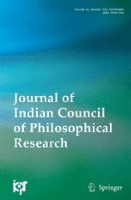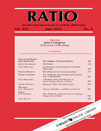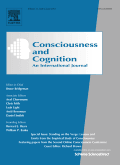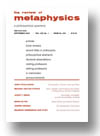
JOURNAL OF CONSCIOUSNESS STUDIES
Scope & Guideline
Bridging Philosophy and Science in the Study of Consciousness.
Introduction
Aims and Scopes
- Interdisciplinary Exploration of Consciousness:
The journal integrates insights from philosophy, neuroscience, psychology, and cognitive science to provide a comprehensive understanding of consciousness. - Philosophical Inquiry:
A significant focus is placed on philosophical debates surrounding consciousness, including discussions of dualism, panpsychism, and the hard problem of consciousness. - Empirical Research:
The journal publishes empirical studies that investigate the neural and psychological correlates of consciousness, aiming to bridge the gap between subjective experiences and objective measurements. - Cultural Perspectives on Consciousness:
There is a growing emphasis on indigenous and cultural interpretations of consciousness, highlighting the diversity of experiences and beliefs related to conscious states. - Mind-Body Relationship:
Exploration of the relationship between mental states and physical processes continues to be a core area, addressing questions of how consciousness interacts with the brain and body. - Ethics and Consciousness:
The journal also considers the ethical implications of consciousness research, particularly in relation to sentience in animals and plants, and the moral responsibilities that arise from such understandings.
Trending and Emerging
- Panpsychism and Integrated Information Theory:
There is an increasing interest in panpsychism as a viable theory of consciousness, alongside integrated information theory, reflecting a shift towards more holistic and inclusive frameworks. - Cultural and Indigenous Perspectives:
Recent publications emphasize the importance of cultural and indigenous perspectives on consciousness, fostering dialogue between Western and non-Western understandings of the mind. - Sentience and Ethical Considerations:
The ethical implications of consciousness research, particularly concerning sentience in non-human animals and plants, are becoming a focal point, influencing discussions on moral responsibility. - The Role of Introspection and Metacognition:
Emerging research on introspection and metacognition is gaining traction, exploring how self-awareness and reflective thinking contribute to our understanding of consciousness. - Neuroscience of Consciousness:
A trend towards empirical studies that investigate the neural correlates of consciousness is evident, with an emphasis on understanding the brain's role in conscious experience. - Consciousness in Artificial Intelligence:
The journal is increasingly addressing questions surrounding consciousness in artificial intelligence, exploring the implications of machine consciousness and its ethical ramifications.
Declining or Waning
- Traditional Neuroscience Models:
There seems to be a waning focus on traditional neuroscience models that strictly correlate consciousness with specific brain regions, as newer integrative approaches gain traction. - Reductionist Approaches to Consciousness:
Reductionist perspectives that attempt to explain consciousness solely in terms of physical processes are appearing less frequently, with more interdisciplinary and holistic models being favored. - Classical Theories of Mind:
Classical theories of mind, such as Cartesian dualism, are being challenged and thus are less commonly featured, as contemporary discussions favor more nuanced and integrated frameworks. - Explorations of Altered States:
While still present, the exploration of altered states of consciousness, such as those induced by psychoactive substances, is less pronounced compared to the previous years, possibly due to a shift towards more integrative and empirical research.
Similar Journals

Journal of Indian Council of Philosophical Research
Elevating scholarly discourse in contemporary philosophy.The Journal of Indian Council of Philosophical Research, published by SPRINGER INDIA, serves as a vital platform for scholarly discourse in the realm of philosophy. With an ISSN of 0970-7794 and an E-ISSN of 2363-9962, this journal is committed to advancing philosophical inquiry and engaging with contemporary philosophical debates. Although it is currently categorized in the Q4 quartile for Philosophy and retains a position in the 28th percentile within its Scopus category rankings, the journal aims to uplift philosophical dialogue and promote innovative ideas through exclusive articles, reviews, and critical essays. Based in New Delhi, India, the journal operates within a vibrant academic context and spans converged years from 2015 to 2024. While it is not an open-access journal, it offers essential insights and perspectives that contribute significantly to the field of philosophy. Scholars and students alike will find this journal an invaluable resource for enriching their understanding and fostering intellectual growth in philosophical research.

Journal of French and Francophone Philosophy
Bridging Historical Insights with Contemporary Issues.Journal of French and Francophone Philosophy is a prominent academic journal dedicated to the exploration and dissemination of scholarly work in the field of French and Francophone philosophy. Published by the University of Pittsburgh Library System, this journal has been a significant player in the discourse on philosophical thought since its inception in 1989, operating under an Open Access model to ensure broad accessibility to its content. With its ISSN 1936-6280 and E-ISSN 2155-1162, the journal highlights critical debates, methodologies, and cultural contexts that shape French and Francophone philosophical traditions. The journal's commitment to academic excellence is underscored by its adherence to high scholarly standards, making it an essential resource for researchers, professionals, and students eager to engage with contemporary philosophical issues and historical analyses alike. By facilitating dialogue among diverse philosophical perspectives, it continues to enhance the academic landscape and promote the relevance of French and Francophone thought in a global context.

Ratio
Pioneering New Perspectives on Timeless IssuesRatio is a prestigious peer-reviewed journal published by WILEY, specializing in the field of Philosophy. Since its inception in 1988, Ratio has committed to advancing philosophical discourse, addressing contemporary issues, and exploring foundational questions that shape our understanding of the world. With an impressive impact factor and a 2023 classification as a Q1 journal in Philosophy, it holds a significant position in the academic community, ranked #207 out of 806 in the Arts and Humanities category according to Scopus, placing it in the 74th percentile. While primarily subscription-based, Ratio provides a platform for rigorous scholarship and intellectual exchange, inviting contributions from researchers, professionals, and students eager to engage with cutting-edge philosophical debates. The journal's continuous evolution through 2024 and beyond underscores its relevance and influence, making it a vital resource for anyone dedicated to the study of philosophy.

Integrative Psychological and Behavioral Science
Illuminating the Pathways of Human ExperienceIntegrative Psychological and Behavioral Science is a premier scholarly journal published by Springer, dedicated to advancing the understanding of complex psychological and behavioral processes. As an essential resource for researchers and practitioners alike, this journal features peer-reviewed articles that span diverse disciplines, including psychology, anthropology, cultural studies, and philosophy, reflecting its broad interdisciplinary scope. With an impressive impact factor and categorization across various quartiles, including Q1 in Cultural Studies and Philosophy, it stands out in the academic landscape, fostering innovative research that informs both theory and practice. The ISSN for this journal is 1932-4502, and the E-ISSN is 1936-3567. While the journal does not currently operate under an open access model, it ensures rigorous academic standards and accessibility through institutional subscriptions. With converged years from 1969, 1976, and from 2007 to 2024, Integrative Psychological and Behavioral Science remains a vital platform for dialogue and discovery in the pressing issues that shape human behavior and mental processes.

CONSCIOUSNESS AND COGNITION
Unlocking the Mysteries of Human ThoughtConsciousness and Cognition is a prestigious academic journal dedicated to advancing the understanding of cognitive processes and consciousness. Published by Academic Press Inc, Elsevier Science, the journal has maintained a prominent presence in the field since its inception in 1992, reaching a converged publication timeline through 2024. With an impact factor reflecting its high relevance, it holds a Q1 rank in Arts and Humanities and Q2 ranks in both Developmental and Educational Psychology and Experimental and Cognitive Psychology as of 2023. Researchers and academics utilize this journal as a critical resource for the latest empirical findings, theoretical advancements, and innovative methodologies in understanding the intricacies of human cognition and conscious experience. Although it does not offer open access, the journal’s extensive contributions help shape active dialogues within this interdisciplinary domain, making it essential reading for professionals, researchers, and students alike striving to explore the mysteries of consciousness.

REVIEW OF METAPHYSICS
Connecting scholars to the heart of philosophical exploration.REVIEW OF METAPHYSICS is a distinguished journal published by PHILOSOPHY EDUCATION SOC, INC, dedicated to advancing scholarly discourse in the field of philosophy. With an ISSN of 0034-6632 and an E-ISSN of 2154-1302, this journal has been a crucial platform for philosophical inquiry since its inception in 1975, converging its rich content from 1992 and continuously serving the academic community up to 2022. Based in the United States, specifically at 223 Aquinas Hall, Catholic University America, Washington, DC, it has secured a reputation for quality, reflected in its placement within the Q3 category of the 2023 Philosophy rankings, and a Scopus rank of 367 out of 806 in Arts and Humanities, placing it in the 54th percentile. Although it does not offer open access options, the REVIEW OF METAPHYSICS remains an essential resource for philosophers and students alike, fostering critical perspectives on metaphysical issues, and thereby contributing significantly to the advancement of philosophical studies.

Sophia
Exploring the Depths of Philosophy and FaithSophia, a prestigious journal published by Springer, is a leading platform for the advancement of knowledge in the fields of Philosophy and Religious Studies. Established in 1962, this open-access journal has embraced a global perspective and invites scholarly contributions that explore complex philosophical questions and the intricacies of religious thought. With an impact factor that reflects its significance, Sophia ranks in the top quartiles of its categories on Scopus, specifically Q2 in Philosophy and Q1 in Religious Studies, showcasing its influence and reach within the academic community. With convenient open access options available since 2009, the journal ensures that research disseminates freely, promoting engagement among researchers, professionals, and students alike. Located in the Netherlands and connected to a reputable international network, Sophia remains committed to fostering intellectual dialogue and enriching the discourse surrounding philosophical and religious issues worldwide.

Filozofska Istrazivanja
Connecting Scholars in the Pursuit of WisdomFilozofska Istrazivanja is a distinguished open-access journal dedicated to the field of philosophy, published by the Croatian Philosophical Society. Since its inception, the journal has provided a platform for the dissemination of philosophical research, fostering scholarly dialogue and critical engagement within the discipline. With an ISSN of 0351-4706, this journal has been freely accessible to readers since 2005, reflecting its commitment to promoting knowledge and accessibility in the academic community. As measured by its Q4 in Philosophy category quartile for 2023 and its Scopus ranking of #770/806 in the Arts and Humanities field, Filozofska Istrazivanja continues to serve as a crucial resource for researchers, educators, and students alike seeking to explore contemporary philosophical issues and debates. The journal encourages submissions that contribute to various philosophical subfields, enriching the discourse and providing new insights that can elevate the understanding of philosophical thought.

Filosofskii Zhurnal
Engaging Minds Through Scholarly ExplorationFilosofskii Zhurnal, published by the esteemed Russian Academy of Sciences - Institute of Philosophy, is a renowned academic journal focused on the vibrant fields of Philosophy, Cultural Studies, History and Philosophy of Science, and Linguistics. With an ISSN of 2072-0726 and an E-ISSN of 2658-4883, this esteemed publication has been a pivotal source of scholarly discourse since its inception in 2019, with converged years extending through 2024. Holding a distinguished Q2 quartile ranking in several disciplines, the journal is instrumental in advancing knowledge and research within its realms, making significant contributions to the understanding of philosophical thought, cultural dynamics, and language interpretation. Although it does not currently offer open access options, the journal maintains a strong presence in Scopus with notable rankings, including its position at #490/806 in Philosophy and #837/1304 in Cultural Studies. By providing a platform for original research, critical reviews, and interdisciplinary dialogue, Filosofskii Zhurnal serves as a valuable resource for researchers, professionals, and students seeking to deepen their understanding of philosophical inquiry and related fields.

Neuroscience of Consciousness
Connecting Minds: Where Neuroscience Meets ConsciousnessNeuroscience of Consciousness, published by Oxford University Press, stands at the forefront of interdisciplinary research in the realms of clinical psychology, experimental and cognitive psychology, neurology, and psychiatry. Since its inception as an Open Access journal in 2015, it has garnered a prestigious reputation, consistently ranking in the Q1 category across multiple fields, including a remarkable 15th rank in Experimental and Cognitive Psychology and 44th in Neurology. This journal serves as a vital resource for researchers, professionals, and students aiming to explore the complexities of consciousness through the lens of neuroscience. By providing a platform for original research, reviews, and critical analyses, Neuroscience of Consciousness enables the dissemination of innovative ideas and findings that contribute to the advancement of knowledge in this crucial area of study. Its open access model ensures that groundbreaking research is readily available to a global audience, further solidifying its impact in the academic community.